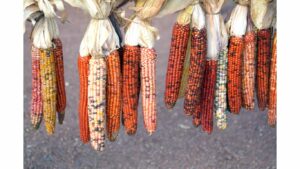In a world often dominated by global supply chains and supermarket shelves stocked with produce from unknown origins, there’s something undeniably magical about the bustling aisles of a local food market. Here, not only do you find an abundance of fresh, flavorful produce, but you also encounter the stories and faces of the individuals who grow, raise, and create the very items you’re buying.
This blog post is a guide for the locavores and food enthusiasts of North Carolina who appreciate the value of community-supported agriculture and the distinct flavor of local produce. Join us as we venture into the heart of North Carolina’s vibrant food market scene, exploring the rich tapestry of flavors and traditions that define the state’s local food culture.
The Oasis of Freshness and Community
Local food markets, including farmers’ markets, signify more than just a place to buy groceries. They are community hubs where local farmers, producers, and shoppers come together, promoting sustainability, supporting local economies, and fostering a sense of community.
Baskets Ready? Here are North Carolina’s Local Market Gems:
- Durham Farmers’ Market:
Nestled in the Historic Durham Central Park, this market is a beacon of local food and community.
Address: 501 Foster St, Durham, NC 27701
- Charlotte Regional Farmers Market:
Boasting a wide selection of fresh produce and a variety of events, this market is a must-visit for foodies.
Address: 1801 Yorkmont Rd, Charlotte, NC 28217
- Carrboro Farmers’ Market:
Not far from Chapel Hill, this market is renowned for its organic fruits and vegetables, as well as its lively music scene.
Address: 301 W Main St, Carrboro, NC 27510
- Winston-Salem Fairgrounds Farmers Market:
A treasure trove of agricultural goods located at the historic fairgrounds.
Address: 414 Deacon Blvd, Winston-Salem, NC 27105
- Asheville City Market:
In the cultural heart of the Blue Ridge Mountains, this market offers a mix of regional flair and creativity.
Address: 161 S Charlotte St, Asheville, NC 28801
- Greensboro Farmers Curb Market:
A historic market with a diverse array of vendors, it’s the perfect place to experience the local flavor.
Address: 501 Yanceyville St, Greensboro, NC 27405
- Boone Farmers Market:
Located at the Horn in the West amphitheater, this market brings together farmers from the High Country.
Address: Horn in the West Dr, Boone, NC 28607
- State Farmers Market (Raleigh):
A colossal market that is the epicenter of agricultural commerce in the region.
Address: 1201 Agriculture St, Raleigh, NC 27603
Benefits of Supporting Local Markets
When you support local markets, you contribute to countless benefits, from the freshness and quality of the food to the ecological impact of reduced food miles.
Here’s Why Local Markets Are Vital:
Freshness and Quality:
At local markets, you’re buying food at its peak of freshness and nutritional value. This is because local produce is usually sold within hours of being picked, unlike mass-produced items that can travel thousands of miles and spend days in transit.
Community Support:
Local markets provide a platform for small-scale farmers and artisans to thrive. By buying directly from them, you’re ensuring that more of your money stays within the community and supports local businesses.
Environmental Impact:
Choosing locally sourced food helps to reduce your environmental footprint. Because the food doesn’t have to travel long distances, it requires less packaging and fuel, ultimately reducing carbon emissions.
North Carolina’s Local Market Scene
From the mountains to the sea, North Carolina’s local market scene is as diverse as its landscape. Each region boasts its own unique set of markets, reflecting the agricultural heritage and specialties of local growers and producers.
Sampling the Markets Across Different Regions:
Asheville:
Skirted by the Blue Ridge Mountains, farmers’ markets in Asheville offer a bounty of fresh mountain produce, including apples, berries, and artisanal cheeses.
Charlotte:
The state’s largest city is home to bustling farmers’ markets that showcase the best of North Carolina’s urban farming and local food initiatives.
Raleigh:
With a rich farming history, the capital city’s markets offer a blend of traditional staples and an emerging crop of new, innovative growers and producers.
Durham:
Revitalizing old traditions with a modern twist, Durham’s markets exemplify the city’s commitment to sustainability and local food.
Engaging with Farmers and Vendors
One of the most rewarding aspects of visiting a local market is the opportunity to engage directly with the people behind your food. This interaction not only enhances the shopping experience but also imparts valuable knowledge about the farm-to-table process.
Building Bridges Between Producers and Consumers:
Understanding the Farm-to-Table Process:
Meet the farmers and vendors, ask questions about their practices, and gain a deeper appreciation for the work that goes into producing your food.
Creating Lasting Relationships:
Building a rapport with local producers can lead to better deals and an insider’s view of the seasonal availability of your favorite produce and products.
Sustainable Living Practices
The movement towards sustainable living and responsible consumption is growing, and local food markets are key players in this endeavor. By making conscious choices at the market, shoppers can contribute to a more sustainable lifestyle.
Making Earth-Friendly Choices Aisle by Aisle:
Eco-Friendly Packaging:
Many vendors at local markets use minimal to no packaging, or offer sustainable options, reducing the environmental impact of unnecessary waste.
Reducing Your Carbon Footprint:
By choosing foods grown close to home, you cut down on the emissions associated with long-distance transportation, contributing to a healthier planet.
Promoting Local Food Culture
Local food markets do more than just provide a shopping experience — they play an integral role in promoting and preserving a region’s food culture. From sharing recipes to fostering an appreciation for local food traditions, these markets are the living, breathing heart of a community’s culinary heritage.
Feeding More Than Just Appetites:
Encouraging Healthy Eating Habits:
With an emphasis on fresh, seasonal produce, local markets inspire shoppers to adopt healthier eating habits that can have a positive impact on their well-being.
Celebrating Regional Food Traditions:
Market-goers can experience first-hand the unique flavors and dishes that make North Carolina’s food culture so rich and diverse.
Conclusion
Local food markets and farmers’ markets are more than just places to buy groceries. They serve as pillars of community, sustainability, and local food culture. By exploring and supporting these markets, you not only enrich your own life with the freshest, most flavorful foods, but also contribute to the health and well-being of your community and the planet.
We encourage you to make a visit to one of North Carolina’s local markets and experience the joy of local food for yourself. It’s a decision that not only benefits you, the farmer, and the environment, but also preserves the timeless art of growing and sharing food within a community. With each purchase, you take a step towards a more vibrant, connected, and sustainable future.









